
Sedona: The Enchanted Red Rock Paradise
Nestled amid the striking red rock formations of Arizona, Sedona is a traveler’s dream. This city is renowned for its breathtaking natural beauty, vibrant arts scene, and spiritual energy. The landscape is a canvas of towering cliffs, pine forests, and clear blue skies, making it a top destination for outdoor enthusiasts and photographers alike. Sedona offers visitors a unique blend of adventure and relaxation. Hiking trails like the Cathedral Rock and Bell Rock offer stunning vistas and opportunities for exploration. For those seeking tranquility, the numerous spas and wellness centers provide rejuvenating experiences amid serene surroundings. The city’s vortex sites are believed to be centers of spiritual energy, attracting people from all over the world. The downtown area is charming, filled with art galleries, boutique shops, and gourmet restaurants. The Tlaquepaque Arts and Crafts Village is a must-visit, showcasing local craftsmanship in a beautiful setting. Whether you're savoring Southwestern cuisine, enjoying a wine tasting, or attending a local festival, Sedona’s vibrant culture is sure to captivate you. With its unique mix of natural splendor and cultural richness, Sedona promises an unforgettable journey.
Local tips in Sedona
- Best time to visit: March to May or September to November for pleasant weather and fewer crowds.
- Take a jeep tour: It’s a great way to explore the rugged terrain and learn about the geology and history.
- Stay hydrated: The dry desert climate can be deceiving. Always carry water, especially during hikes.
- Visit vortex sites: These unique locations are said to have spiritual energy. Whether you're a believer or not, they offer spectacular views.
- Plan for sunset: The red rocks glow beautifully at sunset, making it the best time for photography.
- Check local events: Sedona hosts many festivals and art fairs, which can add a special touch to your visit.
Sedona: The Enchanted Red Rock Paradise
Nestled amid the striking red rock formations of Arizona, Sedona is a traveler’s dream. This city is renowned for its breathtaking natural beauty, vibrant arts scene, and spiritual energy. The landscape is a canvas of towering cliffs, pine forests, and clear blue skies, making it a top destination for outdoor enthusiasts and photographers alike. Sedona offers visitors a unique blend of adventure and relaxation. Hiking trails like the Cathedral Rock and Bell Rock offer stunning vistas and opportunities for exploration. For those seeking tranquility, the numerous spas and wellness centers provide rejuvenating experiences amid serene surroundings. The city’s vortex sites are believed to be centers of spiritual energy, attracting people from all over the world. The downtown area is charming, filled with art galleries, boutique shops, and gourmet restaurants. The Tlaquepaque Arts and Crafts Village is a must-visit, showcasing local craftsmanship in a beautiful setting. Whether you're savoring Southwestern cuisine, enjoying a wine tasting, or attending a local festival, Sedona’s vibrant culture is sure to captivate you. With its unique mix of natural splendor and cultural richness, Sedona promises an unforgettable journey.
When is the best time to go to Sedona?
Iconic landmarks you can’t miss
Chapel of the Holy Cross
Experience the spiritual and architectural wonder of the Chapel of the Holy Cross, seamlessly blending faith and nature in Sedona's red rock landscape.

Tlaquepaque Arts & Shopping Village
Discover the art and soul of Sedona in Tlaquepaque Arts & Shopping Village, a charming Mexican-inspired village with unique galleries and shops.
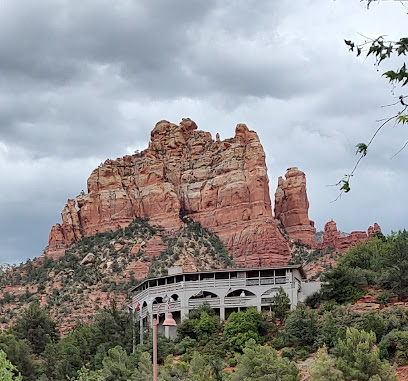
Montezuma Castle National Monument
Explore the ancient cliff dwellings of the Sinagua people at Montezuma Castle National Monument, a remarkably preserved window into the past.
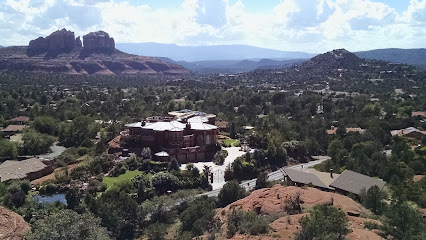
Sedona Airport Scenic Lookout
Discover stunning panoramic views of Sedona's red rocks at the Sedona Airport Scenic Lookout, a must-visit for nature lovers and photographers.
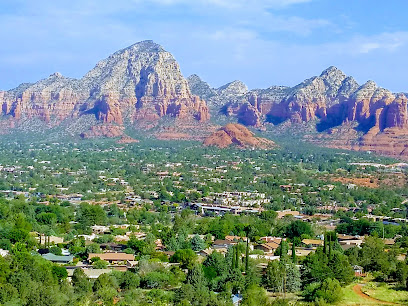
Slide Rock State Park
Experience natural water slides and scenic beauty at this historic apple farm in Oak Creek Canyon, just north of Sedona, Arizona.

Pink Jeep Tours
Experience the breathtaking beauty of Sedona through thrilling and educational jeep tours with Pink Jeep Tours, the ultimate adventure for nature enthusiasts.
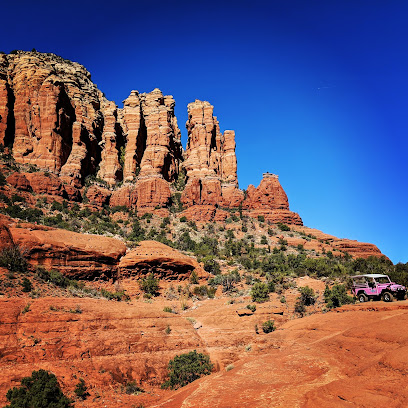
Devil's Bridge Trailhead
Hike to Sedona's largest natural sandstone arch for breathtaking views and a thrilling experience on Devil's Bridge Trail.
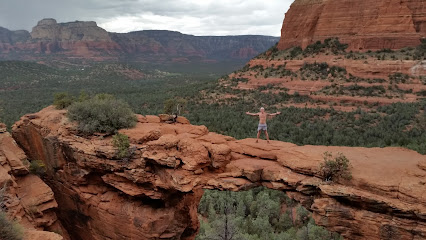
Oak Creek Vista
Experience Arizona's breathtaking beauty at Oak Creek Vista: panoramic views, Native American crafts, and a gateway to outdoor adventures.
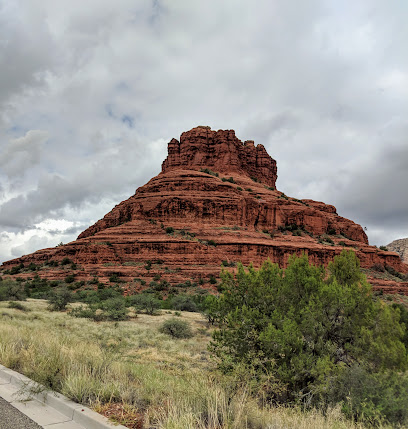
Amitabha Stupa and Peace Park
Find serenity and spiritual enrichment at Sedona's Amitabha Stupa and Peace Park, a welcoming sanctuary for all faiths amidst stunning red rock scenery.
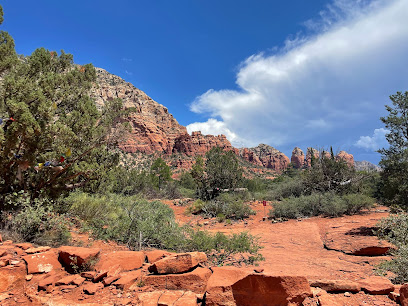
Son-Silver-West Galleries Inc
Discover Southwestern artistry at Son-Silver-West Galleries Inc., a Sedona landmark offering handcrafted souvenirs, Native American artifacts, and unique art.
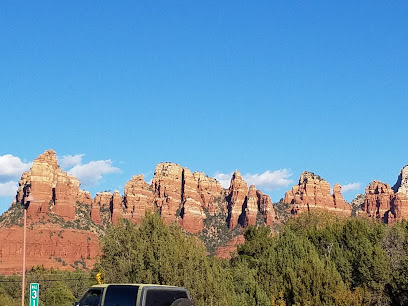
Red Rock State Park
Discover Sedona's beauty at Red Rock State Park: hiking trails, stunning views, and a rich riparian habitat await!
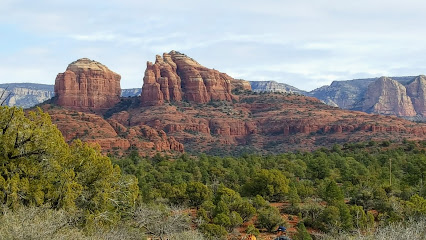
Montezuma Well
Explore Montezuma Well, a stunning historical landmark in Rimrock, AZ, showcasing ancient ruins and breathtaking natural beauty.
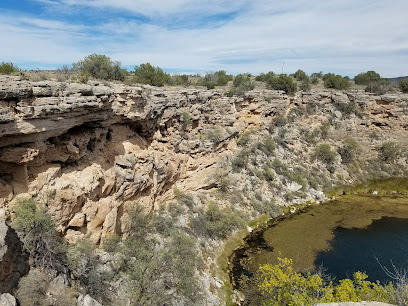
L'Auberge de Sedona
Discover unparalleled luxury and natural beauty at L'Auberge de Sedona, a premier resort offering exquisite accommodations, dining, and rejuvenating spa services.

Airport Mesa
Discover the breathtaking beauty and hiking trails of Airport Mesa in Sedona, Arizona, where stunning red rock formations meet serene landscapes.
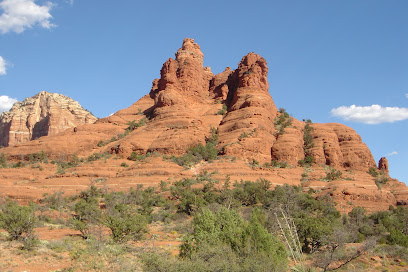
Boynton Canyon Trail
Hike through stunning red rock landscapes, explore ancient ruins, and discover the spiritual energy of Sedona's Boynton Canyon.
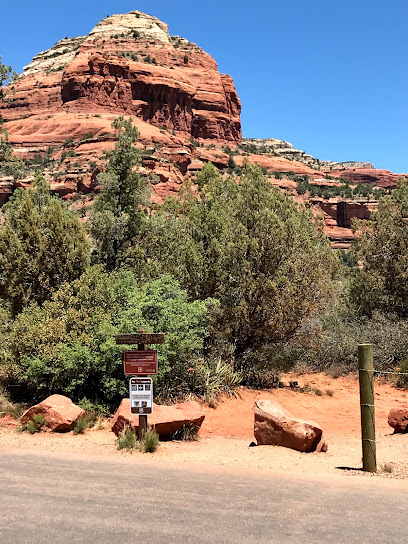
Unmissable attractions to see
Chapel of the Holy Cross
Discover the serene Chapel of the Holy Cross in Sedona, a breathtaking blend of architecture and nature that inspires reflection and awe.
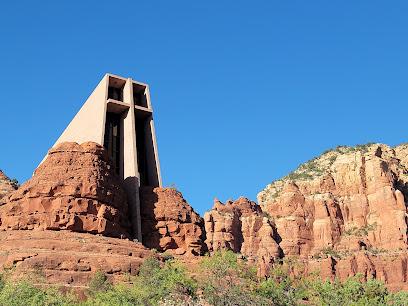
Chapel of the Holy Cross
Experience the tranquil beauty of the Chapel of the Holy Cross, where stunning architecture meets breathtaking red rock scenery in Sedona, Arizona.
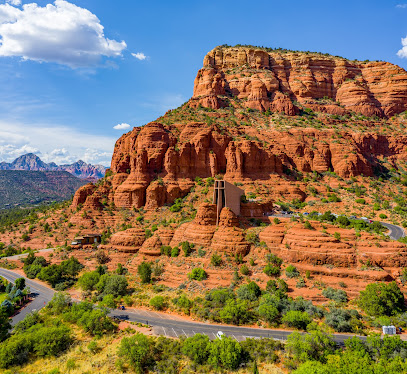
Montezuma Castle National Monument
Experience the ancient cliff dwellings of the Sinagua people at Montezuma Castle National Monument, a must-visit historical site in Arizona.
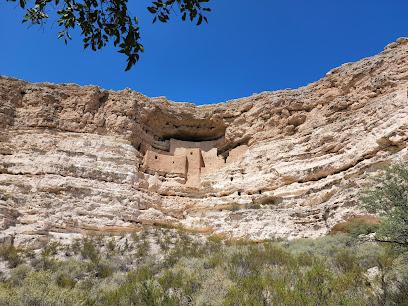
Sedona Airport Scenic Lookout
Experience the breathtaking panoramic views at Sedona Airport Scenic Lookout, a must-visit destination in Arizona's stunning red rock country.
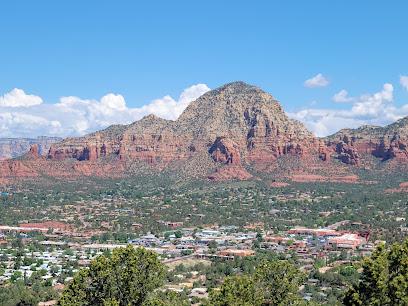
Sedona Airport Scenic Lookout
Experience breathtaking views of Sedona’s iconic red rocks at the Sedona Airport Scenic Lookout, a must-visit attraction for every traveler.
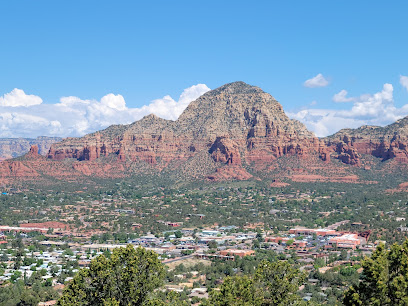
Slide Rock State Park
Experience the natural beauty and thrilling waters of Slide Rock State Park in Sedona, Arizona, a perfect getaway for adventure lovers and nature enthusiasts alike.
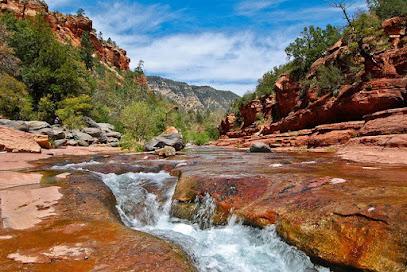
Slide Rock State Park
Experience the thrill of nature at Slide Rock State Park, Arizona's premier destination for outdoor fun and stunning scenery.

Out of Africa Wildlife Park
Discover Out of Africa Wildlife Park in Camp Verde, AZ - a top destination for wildlife encounters and conservation education.
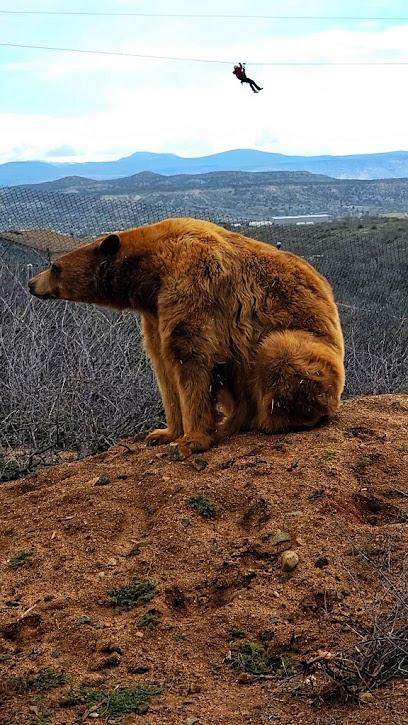
Walnut Canyon National Monument
Explore the captivating beauty and rich history of Walnut Canyon National Monument in Arizona, a perfect blend of nature and ancient culture.
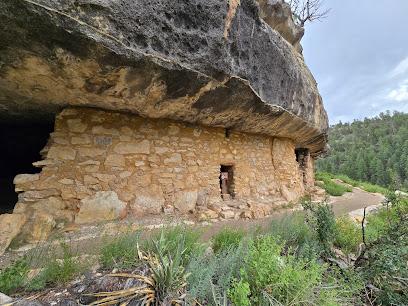
Lowell Observatory
Discover the wonders of the universe at Lowell Observatory, a historic landmark in Flagstaff, Arizona, perfect for stargazers and science enthusiasts alike.
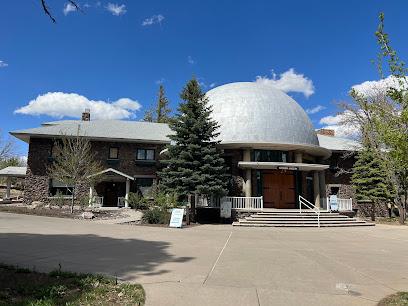
Verde Canyon Railroad
Discover the breathtaking Verde Canyon on a scenic train ride with Verde Canyon Railroad, a unique blend of natural beauty and rich history.
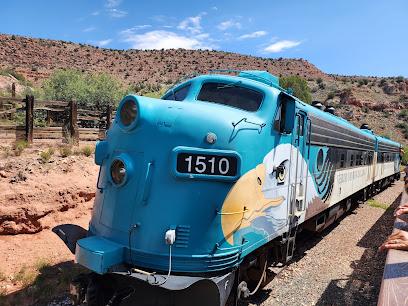
Arizona Safari Jeep Tours
Discover the breathtaking landscapes of Sedona, Arizona, with Arizona Safari Jeep Tours – an unforgettable adventure awaits in the heart of the red rocks.
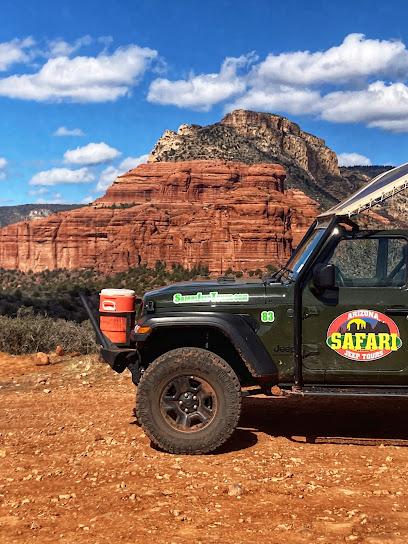
Devil's Bridge Trailhead
Explore the breathtaking Devil's Bridge Trail in Sedona, Arizona, where stunning red rock formations meet an iconic natural arch for an unforgettable outdoor adventure.
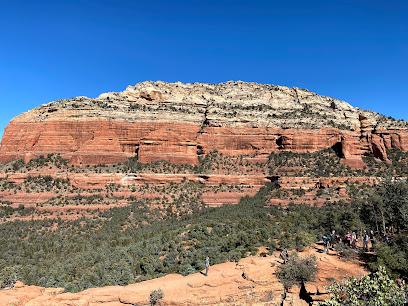
Oak Creek Vista
Experience breathtaking views and serene hiking trails at Oak Creek Vista, a must-visit destination near Flagstaff, Arizona.
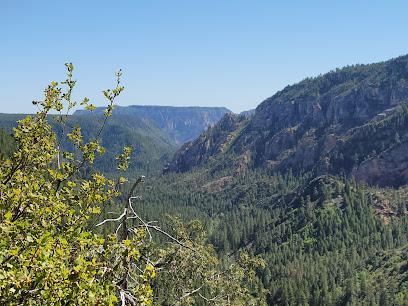
Tuzigoot National Monument
Explore the ancient Sinagua ruins at Tuzigoot National Monument, a captivating archaeological site with stunning views in Arizona's Verde Valley.
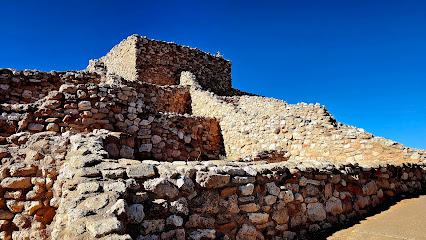
Essential places to dine
Coffee Pot Restaurant
Discover Sedona's Coffee Pot Restaurant - your go-to breakfast spot for delicious omelettes and stunning red rock views.
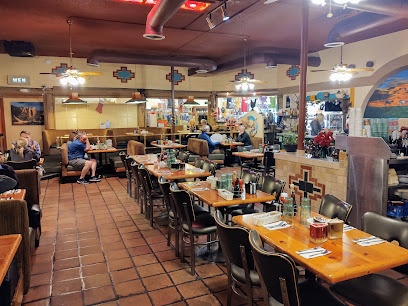
Mariposa Latin Inspired Grill
Experience the vibrant flavors of Latin American cuisine at Mariposa Latin Inspired Grill in Sedona's stunning landscape.
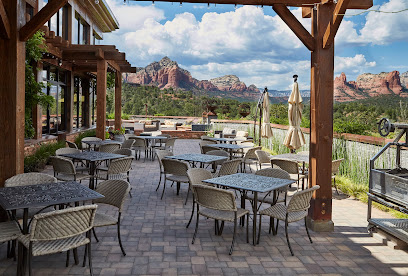
The Hudson
Experience exquisite American cuisine with stunning views at The Hudson in Sedona – where every meal is a feast for the senses.
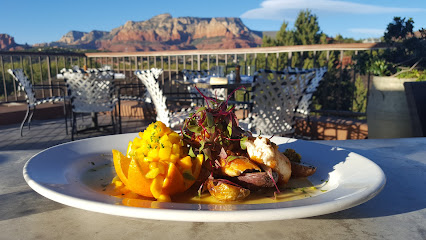
Javelina Cantina
Experience the vibrant flavors of Mexico at Javelina Cantina, where delicious dishes meet stunning Sedona views.
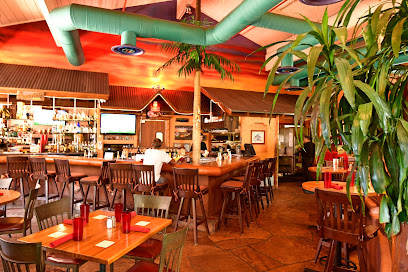
Hideaway House
Discover authentic Italian cuisine at Hideaway House in Sedona - where delicious pizza meets stunning red rock views.
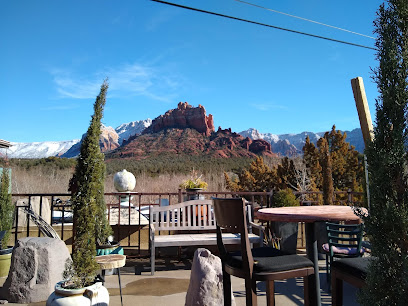
Picazzo's Healthy Italian Kitchen Sedona
Experience authentic Italian cuisine with a healthy twist at Picazzo's Healthy Italian Kitchen in Sedona - where flavor meets wellness.
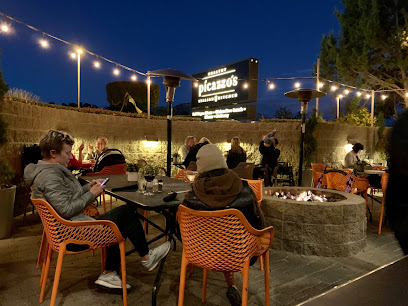
Tortas de Fuego West Sedona
Experience authentic Mexican flavors at Tortas de Fuego West Sedona - where fresh ingredients meet traditional recipes in a vibrant atmosphere.
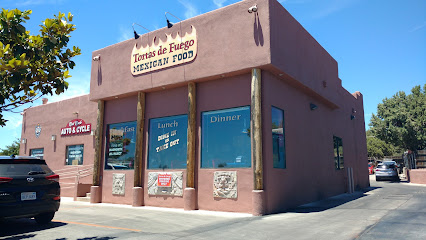
Cowboy Club Grille & Spirits
Discover the best of American cuisine with a Southwestern twist at Cowboy Club Grille & Spirits in Sedona.
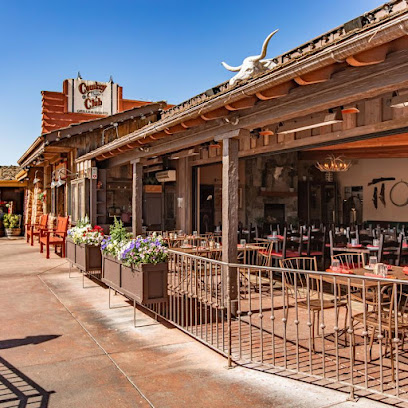
Canyon Breeze Restaurant
Experience the best of American cuisine at Canyon Breeze Restaurant in Sedona—delicious food with breathtaking views awaits!
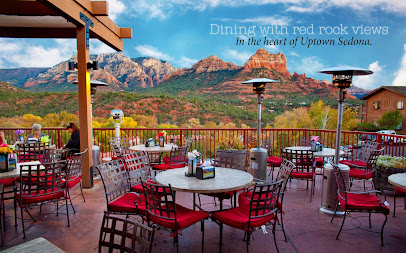
Mesa Grill Sedona
Discover Mesa Grill Sedona: A charming American restaurant offering exquisite Southwestern flavors against breathtaking red rock vistas.
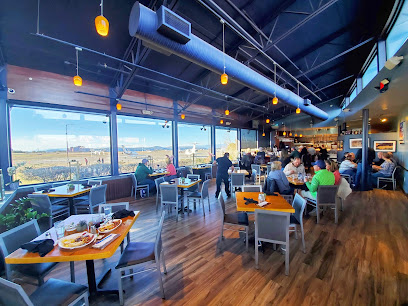
Creekside American Bistro
Discover culinary excellence at Creekside American Bistro in Sedona – where New American flavors meet stunning views.
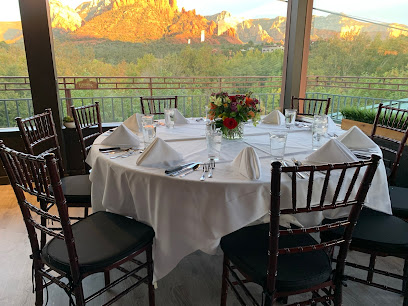
Open Range Grill and Tavern
Experience delicious American cuisine in Sedona’s picturesque setting at Open Range Grill and Tavern – where flavor meets breathtaking views.
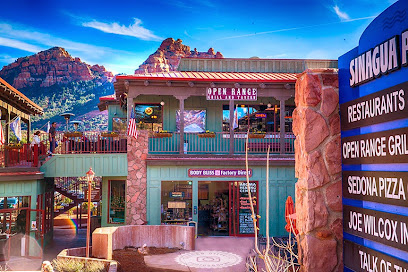
Cafe Jose Restaurant
Experience family-friendly dining at Cafe Jose in Sedona - where delicious meals meet stunning views.
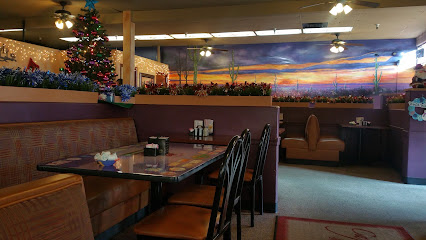
ChocolaTree Organic Eatery
Discover the essence of healthy eating at ChocolaTree Organic Eatery in Sedona – where organic meals meet stunning botanical gardens.
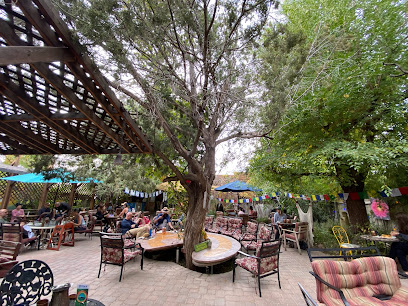
The Golden Goose American Grill
Experience delectable American cuisine at The Golden Goose American Grill in Sedona—where every meal is a celebration of flavor amidst stunning landscapes.
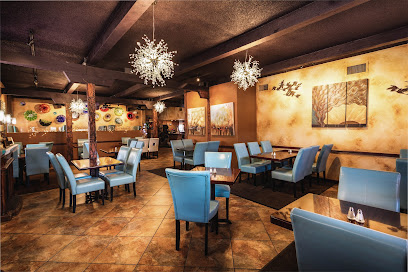
Markets, malls and hidden boutiques
Tlaquepaque Arts & Shopping Village
Experience the charm of Tlaquepaque Arts & Shopping Village, where shopping, art, and dining harmoniously blend in Sedona's stunning red rock landscape.
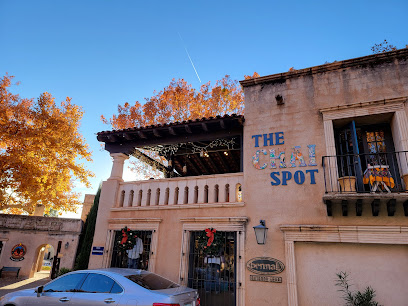
Hillside Sedona Shopping Center
Discover the charm of Hillside Sedona Shopping Center, a unique blend of art, shopping, and dining nestled in Sedona’s breathtaking landscape.
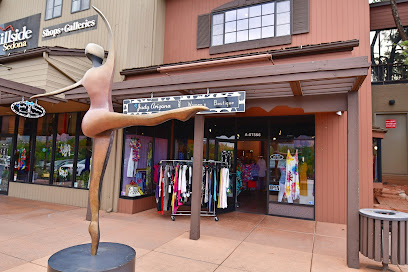
The Shops At Pinon Pointe
Discover unique shops and breathtaking views at The Shops At Pinon Pointe in Sedona, a perfect blend of culture, art, and nature.
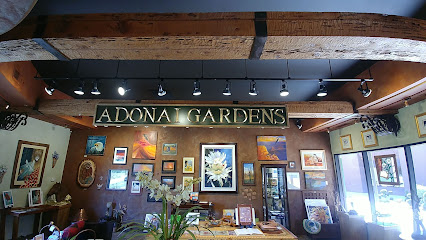
Crystal Magic
Uncover the mystical world of crystals and metaphysical treasures at Crystal Magic, a unique gift shop in Sedona, Arizona.
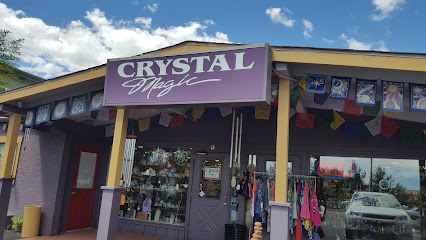
Clear Creek Trading Company
Explore the heart of Native American artistry at Clear Creek Trading Company in Sedona, Arizona - a treasure trove of authentic handmade goods.
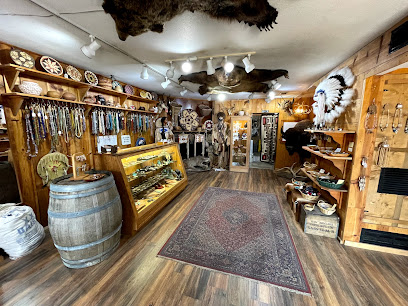
The Dragon's Den Sedona ~ Crystal Store, Metaphysical Gift Shop & Clothing
Discover the magic of Sedona at The Dragon's Den, your premier destination for crystals, metaphysical gifts, and spiritual clothing.
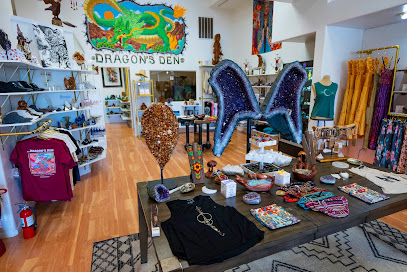
Joe Wilcox Indian Den
Explore Joe Wilcox Indian Den in Sedona for authentic Native American crafts and unique gifts that capture the essence of Southwest culture.
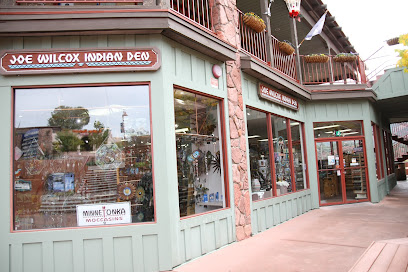
Hummingbird House
Explore Hummingbird House in Sedona for unique, handcrafted gifts and local art that capture the spirit of Arizona's stunning landscapes.
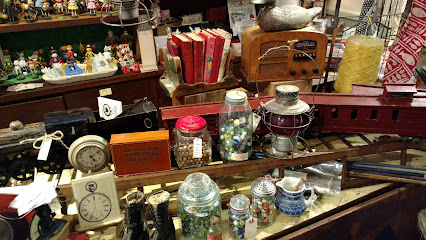
Sedona Candle Gallery
Explore the Sedona Candle Gallery: A unique gift shop and art gallery filled with handcrafted treasures and local artistry.
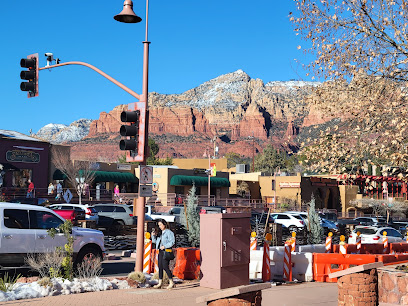
Earthbound Trading Co.
Explore Earthbound Trading Co. in Sedona for unique gifts, fashion accessories, and sustainable products that embody the spirit of the Southwest.
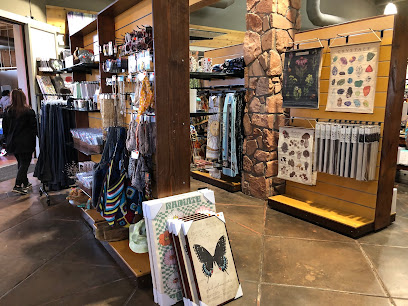
Sedona Wonder Gallery & Gifts
Explore the vibrant artistry of Sedona at Sedona Wonder Gallery & Gifts, where unique local crafts and unforgettable souvenirs await.
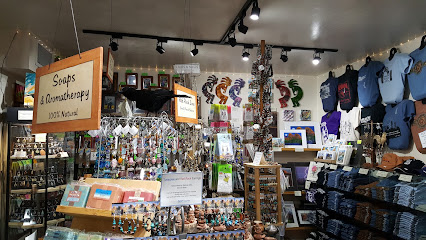
Zonies Galleria
Explore Zonies Galleria in Sedona for unique gifts, stunning local art, and a vibrant shopping experience that captures the spirit of the Southwest.
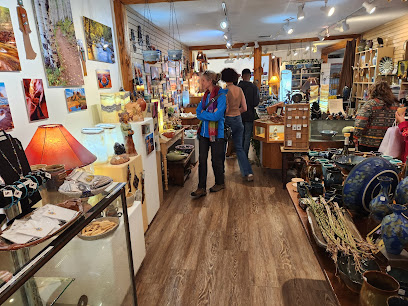
El Khan Bazaar
Explore El Khan Bazaar in Sedona for unique gifts, metaphysical supplies, and psychic readings that embody the spirit of Arizona's mystical charm.
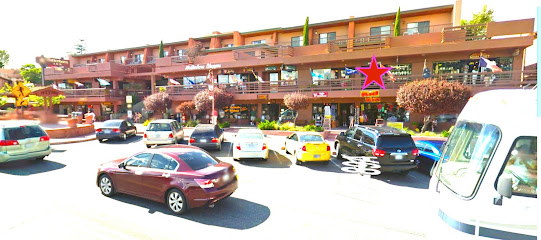
The Hangin Tree
Explore The Hangin Tree in Sedona for unique gifts, local T-shirts, and premium cigars, capturing the essence of this vibrant destination.
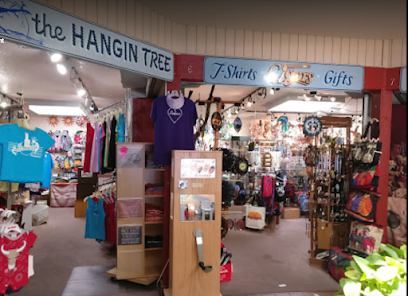
Desert Rat Trading Post
Explore unique souvenirs and local insights at the Desert Rat Trading Post in Sedona, your gateway to the Southwest's rich culture.
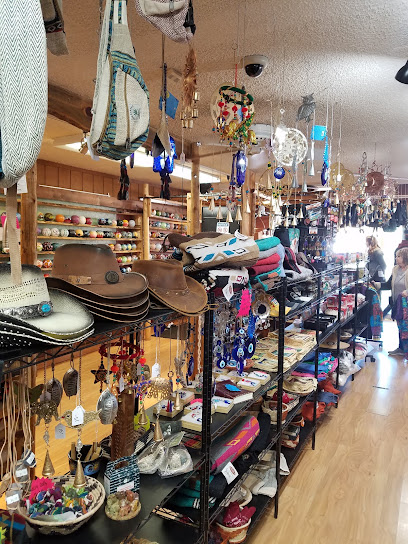
Essential bars & hidden hideouts
Mariposa Latin Inspired Grill
Experience culinary excellence at Mariposa Latin Inspired Grill in Sedona, where Latin flavors meet stunning views for a memorable dining experience.
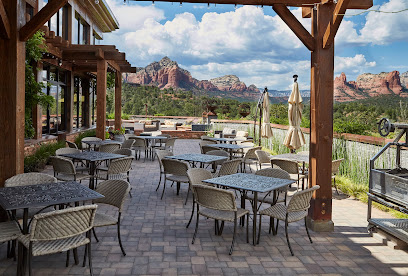
The Hudson
Experience the best of American cuisine at The Hudson in Sedona, where stunning views meet exquisite flavors in a vibrant atmosphere.
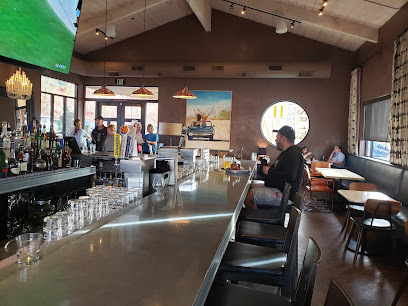
Cowboy Club Grille & Spirits
Discover the flavors of the American West at Cowboy Club Grille & Spirits, a beloved Sedona destination for food lovers and adventurers.
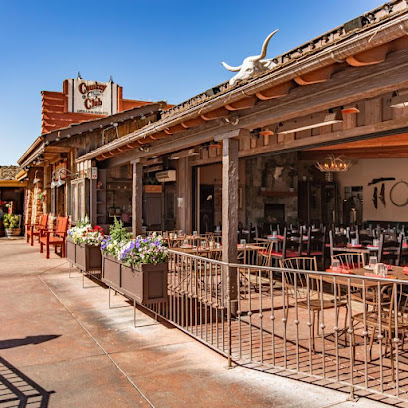
Canyon Breeze Restaurant
Experience the flavors of America at Canyon Breeze Restaurant, where delicious cuisine meets the stunning beauty of Sedona's red rocks.
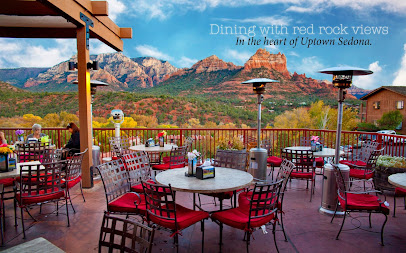
Open Range Grill and Tavern
Discover the best of American cuisine at Open Range Grill and Tavern in Sedona, where great food meets stunning natural beauty.
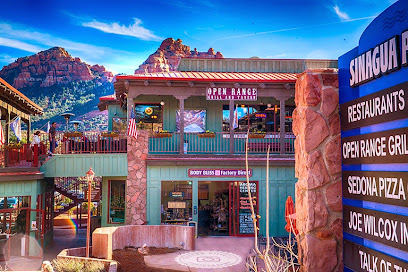
89Agave Cantina
Savor authentic Mexican cuisine in a vibrant atmosphere at 89Agave Cantina, Sedona's go-to spot for delicious food and refreshing drinks.
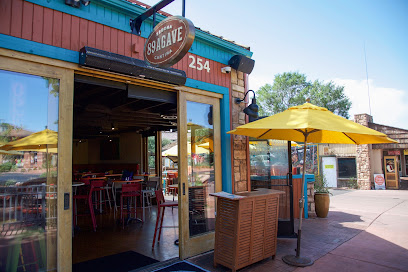
The Vault Uptown
Experience the best of American grill cuisine at The Vault Uptown in Sedona, where flavors and stunning views come together.
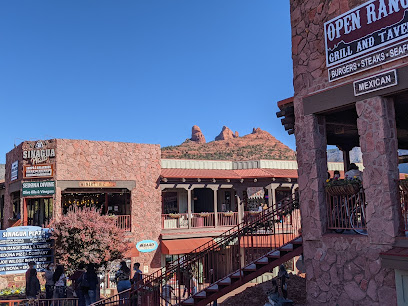
Mooney's Irish Pub & Burger Bar - Sedona
Experience authentic Irish hospitality and delicious American burgers at Mooney's Irish Pub & Burger Bar, a must-visit stop in Sedona, Arizona.
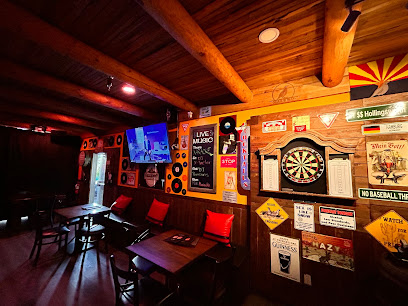
Vino Di Sedona
Discover Vino Di Sedona, where exquisite wines and stunning views meet in a serene atmosphere, perfect for relaxation and socializing.
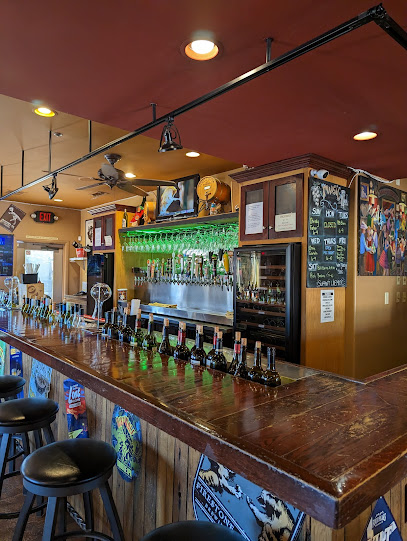
Oak Creek Brewery and Grill
Discover Oak Creek Brewery and Grill in Sedona, where craft beer meets delicious American cuisine amidst breathtaking red rock scenery.
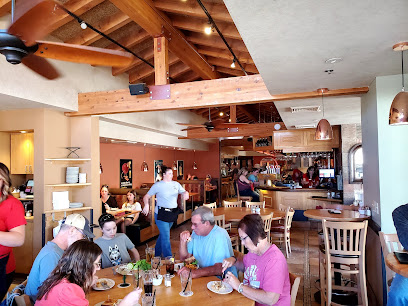
Sound Bites Grill, Sedona AZ
Experience Sedona's vibrant culinary scene at Sound Bites Grill, where organic American cuisine meets stunning views and live music.
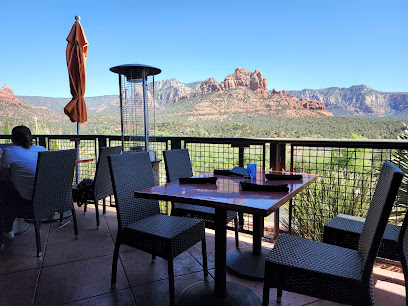
Sedona Beer Company
Discover Sedona Beer Company, where craft brews meet delicious American cuisine against a backdrop of stunning red rock formations.
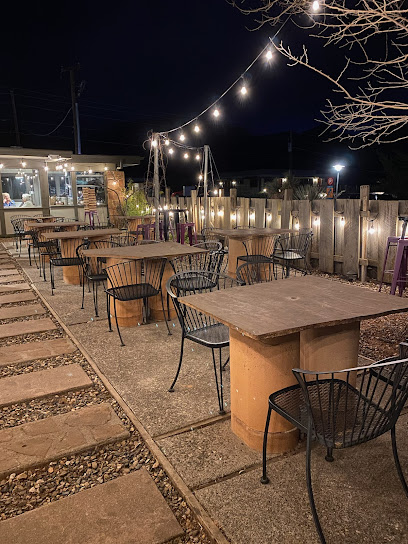
SaltRock Kitchen
Experience the unique flavors of Southwestern cuisine at SaltRock Kitchen, where modern American dishes meet the stunning backdrop of Sedona's red rocks.
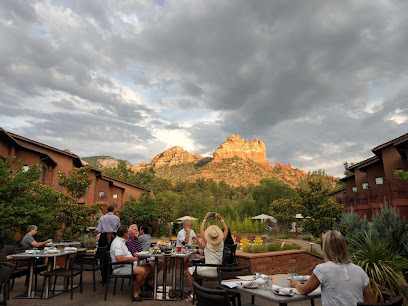
Sundowner
Experience the vibrant flavors of Sedona at Sundowner, a top-rated grill and bar known for its delicious food and lively atmosphere.
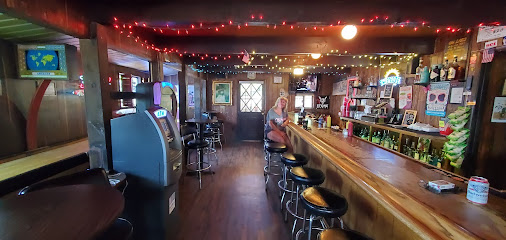
Local Phrases
-
- HelloHowdy
[hah-dee] - GoodbyeAdios
[ah-dee-ohs] - YesYup
[yuhp] - NoNope
[nohp] - Please/You're welcomePlease/You're welcome
[pleez/yur wel-kum] - Thank youThanks
[thanks] - Excuse me/SorryExcuse me/Sorry
[ex-kyoos mee/sor-ee] - How are you?How ya doin'?
[how yuh doo-in] - Fine. And you?Fine. And you?
[fahyn. and yuh?] - Do you speak English?Ya speak English?
[yah speak ing-glish] - I don't understandI don't get it
[eye dohnt get it]
- HelloHowdy
-
- I'd like to see the menu, pleaseI'd like to see the menu, please
[eye'd like tuh see thee men-yoo, pleez] - I don't eat meatI don't eat meat
[eye dohnt eet meet] - Cheers!Cheers!
[cheers] - I would like to pay, pleaseI would like to pay, please
[eye wood like tuh pay, pleez]
- I'd like to see the menu, pleaseI'd like to see the menu, please
-
- Help!Help!
[help] - Go away!Go away!
[go away] - Call the Police!Call the Police!
[call thee puh-lees] - Call a doctor!Call a doc!
[call uh dok] - I'm lostI'm lost
[eye'm lost] - I'm illI'm sick
[eye'm sik]
- Help!Help!
-
- I'd like to buy...I'd like to buy...
[eye'd like tuh bye] - I'm just lookingI'm just lookin'
[eye'm just look-in] - How much is it?How much is it?
[how much iz it] - That's too expensiveThat's too pricey
[thats too pry-see] - Can you lower the price?Can ya lower the price?
[kan yah low-er thee pryce]
- I'd like to buy...I'd like to buy...
-
- What time is it?What time is it?
[what time is it] - It's one o'clockIt's one o'clock
[its wun oh-klok] - Half past (10)Half past (10)
[haf past ten] - MorningMorning
[morn-in] - AfternoonAfternoon
[after-noon] - EveningEvening
[ee-ven-ing] - YesterdayYesterday
[yess-ter-day] - TodayToday
[toh-day] - TomorrowTomorrow
[toh-mor-row] - 11
[wun] - 22
[too] - 33
[tree] - 44
[for] - 55
[five] - 66
[six] - 77
[seven] - 88
[ate] - 99
[nine] - 1010
[ten]
- What time is it?What time is it?
-
- Where's a/the...?Where's a/the...?
[wheres uh/thee] - What's the address?What's the address?
[whats thee ad-dress] - Can you show me (on the map)?Can you show me (on the map)?
[kan yah show mee (on thee map)] - When's the next (bus)?When's the next (bus)?
[whens thee nekst (bus)] - A ticket (to ....)A ticket (to ....)
[uh tik-et (to)]
- Where's a/the...?Where's a/the...?
History of Sedona
-
Long before European settlers arrived, Sedona was home to Native American tribes, most notably the Sinagua people. They established a thriving community around 600 AD, constructing intricate cliff dwellings and multi-room pueblos. Evidence of their sophisticated agricultural practices and trade networks can still be seen in the ruins at sites like Montezuma Castle and Tuzigoot National Monument.
-
The Sinagua people thrived in the Sedona area up until around 1400 AD, after which they mysteriously abandoned their settlements. The reasons for their departure remain a subject of speculation, with theories ranging from prolonged drought to social and political upheaval. The Hopi and other tribes who moved into the region later on hold ancestral ties to the Sinagua.
-
European explorers first made their way into the Verde Valley in the late 16th century. Spanish expeditions, led by figures like Antonio de Espejo, sought to chart the territory and discover riches. These early incursions laid the groundwork for subsequent settlement and missionary efforts in the region.
-
The late 19th century saw the arrival of the first Anglo-American settlers. Pioneers like John James Thompson were drawn to the fertile land and water sources of Oak Creek. These early settlers established farms, orchards, and ranches, marking the beginning of Sedona's agricultural heritage. The town's name itself comes from Sedona Arabella Miller Schnebly, whose husband, Theodore Schnebly, was one of the town's early postmasters.
-
Sedona's stunning red rock formations began to attract attention in the early 20th century. The completion of the first automobile road into the area in 1908 made it more accessible. By the 1920s, Sedona had become a popular destination for vacationers and artists, drawn by its natural beauty and mild climate. This laid the foundation for its development as a tourist hub.
-
In the mid-20th century, Sedona became a popular filming location for Hollywood westerns. Films such as 'Broken Arrow' (1950) and 'Johnny Guitar' (1954) showcased Sedona's dramatic landscapes, bringing national attention to the area. This period saw a boom in local businesses catering to the film industry and tourists alike.
-
By the latter part of the 20th century, Sedona had garnered a reputation as a center for New Age spirituality. The discovery of several 'vortex' sites—areas believed to possess unique energy fields—drew a diverse array of spiritual seekers, healers, and artists. This cultural shift has made Sedona a unique blend of traditional Western and alternative spiritual practices.
-
In recent decades, Sedona has faced challenges related to growth and environmental preservation. Efforts to protect its unique landscapes have led to the establishment of numerous parks and conservation areas. Today, Sedona balances its roles as a vibrant tourist destination, a gateway to outdoor adventure, and a community deeply connected to its historical roots and natural surroundings.
Sedona Essentials
-
Sedona is located in the northern Verde Valley region of Arizona, United States. The nearest major airports are Phoenix Sky Harbor International Airport (PHX) and Flagstaff Pulliam Airport (FLG). From Phoenix, Sedona is approximately a 2-hour drive north via Interstate 17. From Flagstaff, it's about a 45-minute drive south on State Route 89A. Shuttle services, rental cars, and private car services are available from both airports.
-
Sedona is best explored by car due to its expansive natural landscape and numerous trailheads. Rental cars are available at nearby airports. Within the town, the Sedona Trolley offers guided tours, and the Verde Lynx bus service provides public transportation between Sedona and Cottonwood. Ride-sharing services like Uber and Lyft are also available. Biking is a popular option for the more adventurous, with several rental shops in town.
-
The official currency is the United States Dollar (USD). Credit and debit cards are widely accepted in most establishments. ATMs are available throughout Sedona for cash withdrawals. It's advisable to carry some cash for use at smaller businesses, local markets, and for tipping.
-
Sedona is generally a safe destination for tourists. However, it's important to stay vigilant and take standard precautions. Avoid walking alone at night in isolated areas and always secure your belongings. There are no specific high-crime areas targeting tourists, but staying aware of your surroundings is always wise. Be cautious on hiking trails, as weather conditions can change rapidly.
-
In case of emergency, dial 911 for immediate assistance. Sedona has a local police department and several medical facilities, including the Verde Valley Medical Center. Having travel insurance that covers medical emergencies is recommended. Pharmacies are available in town for over-the-counter medications and minor health issues.
-
Fashion: Do wear comfortable, weather-appropriate clothing and sturdy hiking shoes, especially if you plan to explore outdoor trails. Avoid overly formal attire unless attending a special event. Religion: Do respect local spiritual practices and sacred sites, including the numerous vortex sites and Native American heritage areas. Public Transport: Do be courteous to drivers and fellow passengers. Don't eat or drink on public transport. Greetings: Do greet people with a friendly 'hello' or 'hi'. A firm handshake is also common. Eating & Drinking: Do try local Southwestern cuisine and organic food offerings. Don't be overly critical of local dishes, as it might be considered impolite.
-
To experience Sedona like a local, visit the weekly farmers' markets for fresh produce and artisan goods. Engage with residents and ask for recommendations on lesser-known hiking trails and viewpoints. Don't miss the opportunity to participate in a guided jeep tour to explore Sedona's rugged landscape. For a unique experience, attend a local art gallery opening or a Native American cultural event.
Trending Landmark in Sedona
-
Chapel of the Holy Cross
-
Tlaquepaque Arts & Shopping Village
-
Montezuma Castle National Monument
-
Sedona Airport Scenic Lookout
-
Slide Rock State Park
-
Pink Jeep Tours
-
Devil's Bridge Trailhead
-
Oak Creek Vista
-
Amitabha Stupa and Peace Park
-
Son-Silver-West Galleries Inc
-
Red Rock State Park
-
Montezuma Well
-
L'Auberge de Sedona
-
Airport Mesa
-
Boynton Canyon Trail
Nearby Cities to Sedona
-
Things To Do in Flagstaff
-
Things To Do in Prescott
-
Things To Do in Winslow
-
Things To Do in Grand Canyon Village
-
Things To Do in Scottsdale
-
Things To Do in Phoenix
-
Things To Do in Tempe
-
Things To Do in Mesa
-
Things To Do in Gilbert
-
Things To Do in Chandler
-
Things To Do in Kingman
-
Things To Do in Page
-
Things To Do in Lake Havasu City
-
Things To Do in Kanab
-
Things To Do in Laughlin













